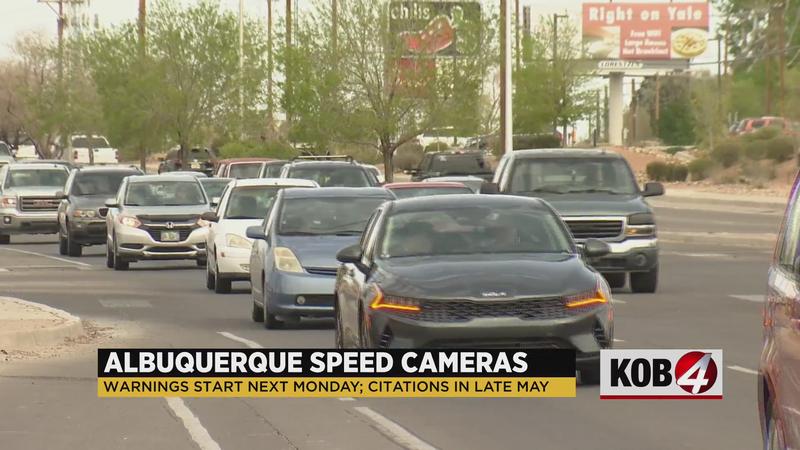Albuquerque city councilors, advocates hopeful for automated speed enforcement
ALBUQUERQUE, N.M. – Mayor Tim Keller signed an ordinance to bring back mobile speed enforcement last October.
Councilors and advocates look forward to hopefully changing the speeding culture in Albuquerque. Especially Rosa Rivera, who lost a piece of her heart on Sept. 12, 2020.
"Every single day it’s been heart stopping agonizing pain that we have felt from the day that this happened and it’ll be a part of our everyday life," said Rosa Rivera, Erika Chavez’s aunt.
Albuquerque police say a speeding driver ran a red light– and killed her niece, Erika Chavez, instantly.
"People need to understand that speeding endangers not only the speeder but every single family member or person of ours that share the road along with them," said Rivera.
Chavez’s family has been on board with mobile speed enforcement in Albuquerque since Keller brought the idea back last year. The family and city councilors believe a new approach to curb speeding is sorely needed.
"APD is understaffed, we’re trying to recruit, they’re working hard, so what else are we going to do to make sure to keep people safe? This is going to be one of those methods we’ve come up with," said Brook Bassan, city councilor.
Bassan says the focus will be on changing the culture– not policing for profit.
"It’s absolutely alarming, people are getting more reckless and I think that it’s because most people are learning that they’re untouchable right now, and that’s what I mean when I say we have to change the culture," said Bassan.
Units are already set up on Gibson and Montgomery Boulevards, only collecting data right now. Bassan says some will be permanent, while others are mobile.
"This is not going to be kind of a gotcha situation– this is about ‘well they’re out there, we’re telling people that they need to slow down.’ And if they don’t, and they’re excessively speeding, they could get a ticket of $100," Bassan said.
And if the ticket goes unpaid.
"There’s going to be an option of community service if somebody can’t afford to pay the fine. But it will end up going to collections. And that can take a ding on your insurance and it can take a ding on your driver’s license and history," said Bassan.
There are high hopes for this new approach.
"We’re hoping this technology effectively targets hot spots for speeders in hopes of saving lives," said Rivera.
The mobile units will start issuing warnings a week from Monday and citations in late May.
Leaders can tailor the enforcement units based on where they are– for example, in a school zone, you might get a ticket for going just 1 mph over the speed limit. In other parts of the city, it might be closer to 10 mph over.
There was also an item on the city council agenda to establish an automated speed enforcement fund.
Bassan is hoping to create a line item in the budget so they can keep track of the money coming in from tickets, and going out to help with maintenance on the mobile units.
City councilors did not get to that item Monday night, they postponed it until the next meeting on May 2.
